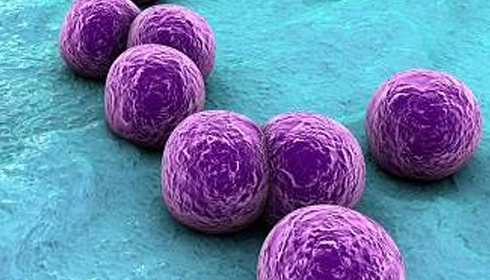
Novel Lipopeptide Proves Lethal Against Staphylococcus Aureus
A groundbreaking antibacterial lipopeptide produced by the bacterium Serratia marcescens has demonstrated exceptional effectiveness in eliminating Staphylococcus aureus, one of the most significant human pathogens.
Staphylococcus aureus is notorious for causing hospital-acquired infections and life-threatening post-surgical complications. Its resistance to most antibiotics introduced since the 1940s, including penicillin, has made it a formidable threat.
Despite this, only two new antibiotic classes with unique modes of action have emerged in the last sixty years, one of which is the lipopeptide daptomycin. Dr. Tanya Decker from Stellenbosch University (SU) recently published a paper in Microbiology Spectrum detailing the first insights into the mode of action of the lipopeptide serrawettin W2-FL10, derived from Serratia marcescens.
She demonstrated that serrawettin W2-FL10 targets the cell membrane of S. aureus, causing lesions that lead to the leakage of intracellular components and ultimately cell death.
Importantly, Dr. Decker confirmed that serrawettin W2-FL10 is not toxic to mammalian cells, marking it as a promising therapeutic agent for human bacterial infections.
Moreover, the structure of serrawettin W2-FL10, comprising five amino acids and a C10 fatty acid chain, is significantly smaller than that of daptomycin, which has 13 amino acids and a C10 fatty acid chain.
This smaller structure could potentially reduce the manufacturing costs of serrawettin W2-FL10. Dr. Decker, now a postdoctoral researcher at the Helmholtz Institute for Pharmaceutical Research Saarland in Germany, began her work on serrawettin W2-FL10 in 2017 within Prof. Wesaal Khan’s research group at SU’s Department of Microbiology. Her research built on the work of Dr. Thando Ndlovu, who isolated various bacterial strains from wastewater samples that produced effective biosurfactants against antibiotic-resistant bacteria.
These biosurfactants, produced naturally by bacteria in polluted environments, help them outcompete other bacteria. Focusing on both pigmented and non-pigmented S. marcescens strains, Dr. Decker discovered that these strains produced a wide range of broad-spectrum antimicrobial compounds.
Among these, serrawettin W2-FL10 emerged as a promising candidate for further investigation.
Prof. Wesaal Khan attributes the success of their findings to their close collaboration with Prof. Marina Rautenbach, a biochemist and specialist in antimicrobial peptides at SU’s Department of Biochemistry.
Dr. Decker continues her research into novel natural antimicrobial products at the Helmholtz Institute in Germany. This discovery opens new avenues for developing cost-effective, potent antibacterial agents to combat the ever-evolving threat of antibiotic-resistant bacteria.